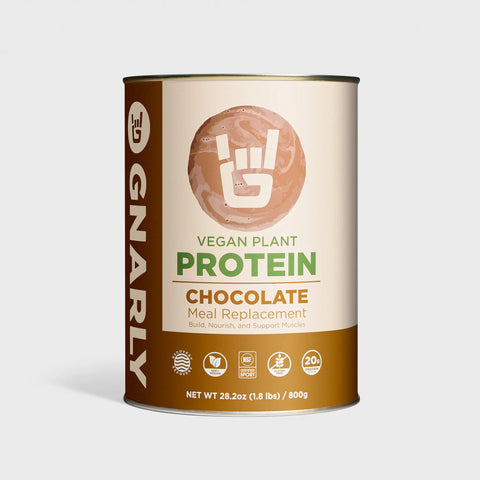You’ve likely heard that whey protein is incredibly good for you – regardless of your exact fitness goals. Want to lose weight? Whey protein can help with that. Want to build muscle? Whey has you there too. Even when it comes to less obvious things like boosting your immune system, balancing your blood sugar or reducing your blood pressure, whey can provide some powerful assistance.
But there is an innumerable selection of powders out there so, many are left wondering: Which is the healthiest protein? What should you look for when selecting a whey protein powder?
Why Whey?
First of all, why should you pick whey over some of the other available protein sources? There are actually several features of whey that give it an advantage over some of the other products you might find. After all, there is a good reason for whey to be the most popular protein supplement.
Let’s start with nutrition. As a component of milk, whey is a complete protein – meaning that it contains high levels of all the essential amino acids that your body isn’t able to produce on it’s own. These amino acids get rearranged and turned into a host of materials once they’ve been sorted, including hormones, cells, tissues and – you guessed it – muscle. Having a steady supply of all the necessary amino acids, then, ensures that your body has everything it needs to properly recover from your workouts.
But lots of proteins are stuffed with aminos. What makes whey special? Often, it comes down to absorption. Unlike casein and other proteins, whey gets put to use rapidly after it’s been ingested – getting to work right away.
As mentioned at the outset, though, whey also contains several other compounds that contribute to it’s reputation as the healthiest protein powder. Among these are immunoglobulins, albumin and lactoferrin – all of which help to support numerous biological functions.
Why Not Whey?
It should be noted, though, that whey may not work for everyone. Why not? Are there any whey protein side effects that you should be aware of?
Well, the fact that it is derived from milk could be a major limiting factor, for several reasons. First, this means that whey contains lactose – a sugar that many people are unable to digest. Lactose-intolerant individuals, then, would want to avoid whey protein.
But, vegans and some vegetarians would also want to avoid whey, as it is technically a dairy product. Fortunately, however, vegan protein powders like Gnarly Vegan Feast are available to help you meet your protein needs within the restrictions of your diet – which can be fairly tricky sometimes.
Apart from these circumstances, though, there is not evidence to suggest that there are any other whey protein side effects worthy of concern. Claims have been made that high-protein diets can be harmful to your kidneys but there is no research to support this idea. In fact, studies have found high-protein diets to be completely safe, given that you already have healthy kidneys.
Picking Your Whey
Okay, now that we understand how whey stacks up to other common protein sources, how do we sort through all the different wheys?
As with most foods, it’s important to stick to minimally processed, organic protein powder. While “organic” means different things in different situations, with whey it translates to a powder that is free of GMOs, antibiotics, hormones and chemical pesticides. To receive the label of “organic,” the product must also be a grass-fed whey protein – sourced from cows that are allowed to graze in pastures on their natural foods, rather than being stuffed into feedlots and given grains to eat.
While it might seem like a small thing, this difference in diet and living conditions has a massive impact on the end-product. Grass-fed whey is not only higher in healthy omega-3 and conjugated linoleic fatty acids, but it’s also produced in a more ethical and environmentally-friendly way.
We do need to be clear on one thing about organic protein powders, though: Just because it’s organic, doesn’t make it healthy. A manufacturer may have begun production with an organically sourced whey protein, but then submitted it to a ton of harsh processing and stuffed the tub with unwanted and unpleasant artificial additives.
To be sure that you’re getting a whey protein powder that is as close to its natural state as possible, look for “whey protein concentrate” on the label. This is the industry term for whey that has simply been separated from the milk and not put through any further processing. Terms like “isolate” and “hydrolate” means that the whey has been subjected to techniques that increase the concentration and bioavailability of the protein – by removing the highly beneficial fat and breaking down the bonds of the amino acids.
Those additives we mentioned could include dyes, sweeteners, emulsifiers, preservatives and flavorings – all of which bring with them a list of potential side effects. While the exact concerns depends on the chemical in question, these compounds have been linked with everything from behavioral problems and obesity to cancer and hormonal disruptions. Instead, select a product that uses only natural ingredients for flavoring, preservation and texture.
In fact, a grass-fed, organic whey naturally has a fantastic, thick, creamy texture and shouldn’t need any chemical assistance. Yet another reason to watch the source of your whey.
Putting It All Together
Right, so let’s sum it up. Which whey protein is the best?
You’ll want to look for an organic whey, sourced from grass-fed cows that have been allowed to roam pastures and have never been treated with hormones or antibiotics. In addition, be on the lookout for whey isolates or hydrolysates that have been heavily processed, since many of the other healthy components of whey have been removed. Finally, avoid any artificial additives and stick to whey products that contain only natural ingredients.
At Gnarly, we pride ourselves on following these principles to produce the healthiest whey protein possible. This protein is available in Gnarly Whey, Gnarly Feast and Gnarly Slim.





